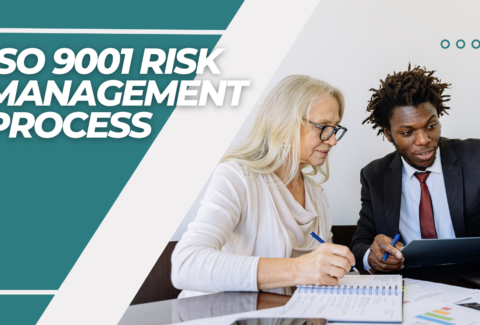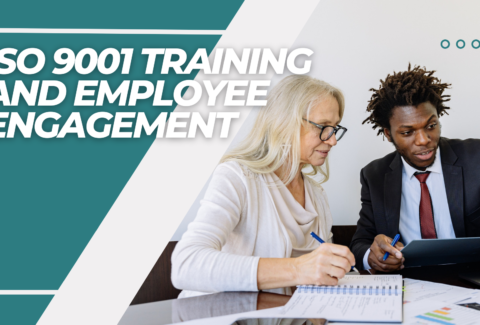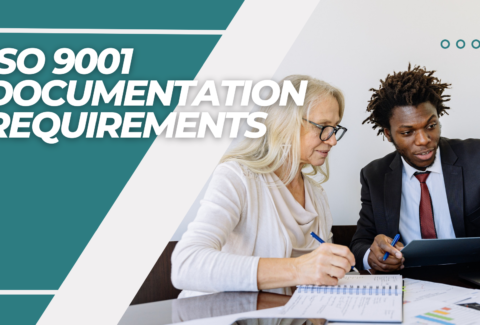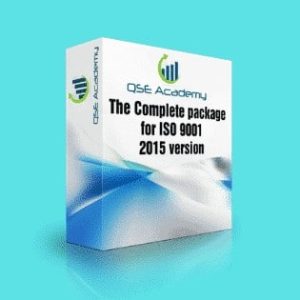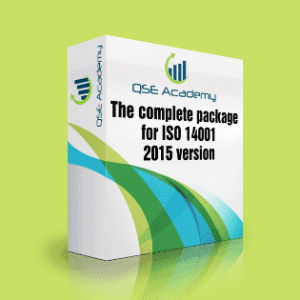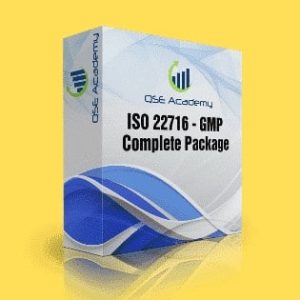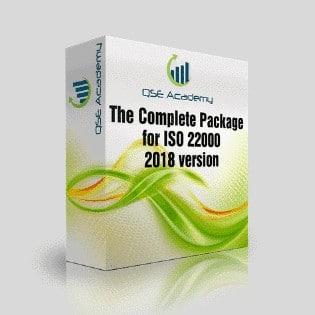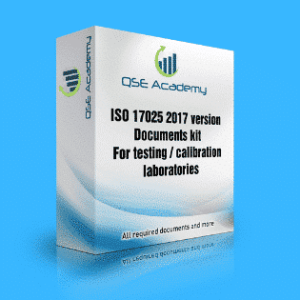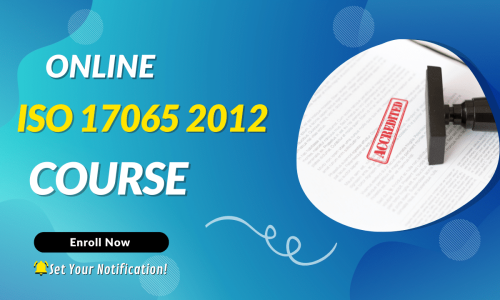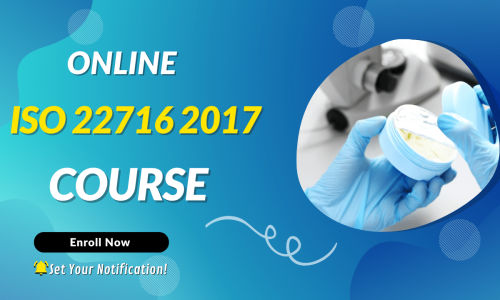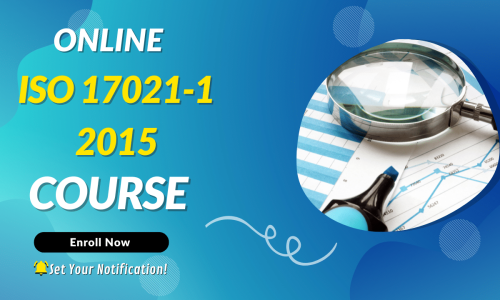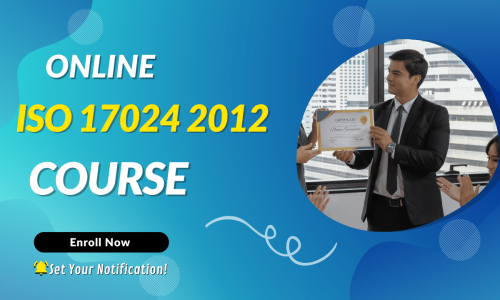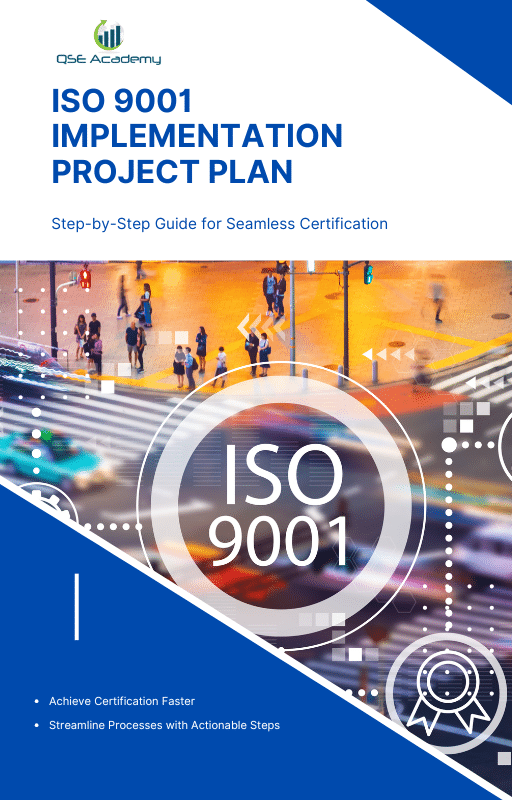How do I get ISO 9001 certified?
How do I get ISO 9001 certified?
If you’ve been thinking about improving your business’s quality processes, you’ve probably wondered: How do I get ISO 9001 certified? Maybe you’ve heard about companies using ISO 9001 to boost efficiency, win more contracts, or gain a competitive edge. But what does the certification process actually involve? And is it worth the effort?
ISO 9001 is the world’s most recognized quality management system (QMS) standard, designed to help businesses improve operations, maintain consistency, and enhance customer satisfaction. But before you can enjoy the benefits, you need to go through the certification process.
In this guide, we’ll break down how to get ISO 9001 certified step by step. Whether you’re a small business looking to build credibility or a large company aiming to streamline processes, we’ll walk you through everything you need to know—from understanding the requirements to passing the final audit. By the end, you’ll have a clear roadmap to certification and a solid foundation for long-term success.
Ready to dive in? Let’s explore what it takes to get ISO 9001 certified!
What Does It Mean to Get ISO 9001 Certified?
Before we jump into the step-by-step process, let’s take a moment to understand what it actually means to get ISO 9001 certified and why so many businesses pursue it.
At its core, ISO 9001 certification is proof that your company follows internationally recognized quality management principles. It shows customers, partners, and stakeholders that your business is committed to consistency, efficiency, and continuous improvement.
But getting certified isn’t just about hanging a certificate on the wall—it’s about building a structured system that helps your business run more smoothly. Whether you’re a manufacturer, service provider, or contractor, becoming ISO 9001 certified can help you:
✅ Improve efficiency – Standardizing processes reduces errors and wasted time.
✅ Enhance customer satisfaction – Happy customers lead to repeat business and strong relationships.
✅ Win more contracts – Many large clients and government agencies require their suppliers to be ISO 9001 certified.
✅ Ensure compliance – Certification helps businesses meet legal, regulatory, or industry-specific requirements.
Who Needs ISO 9001 Certification?
You might be wondering: Is ISO 9001 only for big corporations? Not at all! Businesses of all sizes and industries can get ISO 9001 certified.
- Small Businesses – Helps establish credibility and streamline operations.
- Manufacturers – Ensures consistency in production and product quality.
- Service Providers – Improves service delivery and customer experience.
- Healthcare & Medical Device Companies – Ensures compliance with strict quality and safety regulations.
- Construction & Engineering Firms – Helps manage projects efficiently and meet client expectations.
If your company wants to enhance quality, improve operations, or gain a competitive edge, then pursuing ISO 9001 certification is a smart move.
Now that we know why businesses seek certification, let’s get into the details of how to get ISO 9001 certified step by step!
Steps to Get ISO 9001 Certified
So, you’re ready to get ISO 9001 certified—but where do you start? The certification process may seem overwhelming at first, but when broken down into clear steps, it becomes much more manageable. Whether you’re running a small business or a large corporation, following this structured approach will help you successfully achieve certification.
Let’s go step by step to understand exactly how to get ISO 9001 certified.
Step 1: Understand the ISO 9001 Standard
Before anything else, you need to familiarize yourself with ISO 9001. Think of it like reading the rules before playing a new board game—understanding the basics will make the process much easier.
- ISO 9001:2015 is the latest version of the standard and focuses on process improvement, risk-based thinking, and customer satisfaction.
- The standard is built on seven key principles, including leadership involvement, continuous improvement, and evidence-based decision-making.
- You can download a copy of the standard from the International Organization for Standardization (ISO) or work with a consultant to help interpret the requirements.
Knowing what’s expected will help you develop a Quality Management System (QMS) that aligns with ISO 9001 requirements.
Step 2: Conduct a Gap Analysis
Before implementing changes, it’s important to assess where your business currently stands. A gap analysis helps you compare your existing processes with ISO 9001 requirements to identify areas that need improvement.
- Review your current documentation, processes, and quality controls.
- Identify any missing elements, such as formalized policies or procedures.
- Prioritize the biggest gaps and create an action plan to close them.
A gap analysis gives you a clear roadmap for making the necessary improvements before moving forward with certification.
Step 3: Develop a Quality Management System (QMS)
A QMS is the foundation of your ISO 9001 certification. It’s a structured approach to managing quality, reducing risks, and improving customer satisfaction.
To develop an effective QMS:
✅ Define a quality policy that aligns with ISO 9001 principles.
✅ Establish measurable quality objectives to track performance.
✅ Document key processes and procedures to ensure consistency.
✅ Train employees on their roles and responsibilities within the QMS.
Your QMS should be tailored to your business needs while meeting ISO 9001 requirements. Once in place, it will serve as your guide for maintaining high-quality operations.
Step 4: Implement the QMS and Conduct Internal Audits
Now that your QMS is documented, it’s time to put it into action. This step involves:
- Training employees so they understand and follow the new quality processes.
- Monitoring operations to ensure compliance with ISO 9001 requirements.
- Conducting internal audits to check for nonconformities and areas for improvement.
Internal audits act as a practice run before the external certification audit. They help you identify and fix issues before they become a problem.
Step 5: Choose a Certification Body
To get ISO 9001 certified, you need to pass an audit conducted by an accredited certification body. These organizations are independent third-party auditors authorized to issue ISO 9001 certificates.
When choosing a certification body:
- Ensure they are accredited by a recognized organization (e.g., UKAS, ANAB).
- Look for experience in your industry.
- Compare costs and audit timelines.
Once selected, your certification body will schedule an official audit to assess your compliance.
Step 6: Pass the Certification Audit
The final step to get ISO 9001 certified is passing the external certification audit. This is typically done in two stages:
1️⃣ Stage 1 Audit – The auditor reviews your documentation and checks if your QMS is ready for full assessment.
2️⃣ Stage 2 Audit – A more detailed evaluation of how well your company follows ISO 9001 requirements in daily operations.
If you pass both stages, congratulations! 🎉 You’ll receive your ISO 9001 certification, proving that your business meets international quality standards.
If the auditor finds any nonconformities, don’t worry—you’ll be given time to correct them and request a follow-up review.
Next Steps: Maintaining Your ISO 9001 Certification
Getting certified is just the beginning! Once you get ISO 9001 certified, you need to maintain compliance by:
✔ Conducting regular internal audits.
✔ Keeping documentation updated and accurate.
✔ Undergoing annual surveillance audits by the certification body.
✔ Focusing on continuous improvement to enhance processes over time.
Maintaining your ISO 9001 certification ensures that you continue to enjoy the benefits of better efficiency, customer trust, and business growth.
Final Thoughts
Following these steps will help you successfully get ISO 9001 certified and position your business for long-term success. While the process requires effort, the improvements in quality, efficiency, and credibility make it a worthwhile investment.
Are you ready to take the first step? Start by assessing your current processes and building a plan to implement ISO 9001 best practices—and before you know it, you’ll be on your way to certification!
How Long Does It Take to Get ISO 9001 Certified?
If you’re considering certification, you’re probably wondering: How long does it actually take to get ISO 9001 certified? The answer depends on several factors, like the size of your business, the complexity of your processes, and how prepared you are before starting.
On average, most companies take three to twelve months to complete the certification process. However, the timeline can vary based on the following key factors:
Factors That Affect the Timeline
1. Your Starting Point: Do You Already Have a QMS?
If your company already follows structured quality management practices, you might get ISO 9001 certified faster. But if you’re starting from scratch, expect to spend more time developing policies, documenting procedures, and training employees.
✅ If you have a QMS in place → Certification could take as little as 3–6 months.
✅ If you’re starting fresh → It might take 6–12 months to fully implement a system that meets ISO 9001 standards.
2. Company Size and Complexity
Larger companies with multiple locations, departments, and complex processes may need more time to coordinate and standardize operations.
- Small businesses (under 50 employees) → Can typically get ISO 9001 certified within 3–6 months.
- Medium-sized companies (50–250 employees) → Often take 6–9 months.
- Large enterprises (250+ employees) → May take 9–12 months or longer, depending on the scale of operations.
3. Employee Readiness and Training
One of the most critical steps in certification is training your employees to follow ISO 9001 standards. If your team is on board and actively engaged, the process moves much faster. If there’s resistance to change or a lack of understanding, expect some delays.
💡 Tip: Invest in ISO 9001 training programs to educate employees and speed up the adoption process.
4. Internal Audits and Corrective Actions
Before you can get ISO 9001 certified, your business must conduct internal audits to ensure compliance with the standard. If these audits reveal major gaps or nonconformities, you’ll need additional time to fix issues and improve processes.
- Few nonconformities? Your timeline stays on track.
- Major issues? You may need extra weeks or months to make necessary corrections.
5. Certification Body Scheduling
Once you’re ready for the final audit, you’ll need to book an appointment with a certification body. Depending on their availability, you may have to wait a few weeks or months for the audit to take place.
💡 Tip: Start researching and choosing a certification body early in the process to avoid scheduling delays.
How to Speed Up the Process and Get ISO 9001 Certified Faster
If you’re on a tight timeline, here are a few ways to accelerate the certification process:
✔ Hire an ISO 9001 Consultant – A consultant can guide you through the process and help you avoid common pitfalls.
✔ Use ISO 9001 Software – Digital tools can streamline document control, audits, and compliance tracking.
✔ Assign a Dedicated Team – Having an ISO 9001 implementation team ensures faster decision-making and execution.
✔ Plan Ahead for Audits – Scheduling audits in advance prevents unnecessary delays.
✔ Start with a Gap Analysis – Identifying weaknesses early allows you to fix them before they slow you down.
So, How Long Will It Take for Your Business?
If you’re well-prepared and have a solid quality management system, you could get ISO 9001 certified in as little as 3–6 months. But if you’re just starting out and need to build your QMS from the ground up, expect 6–12 months or more.
No matter how long it takes, the important thing is getting it right—because once you’re certified, you’ll enjoy better efficiency, stronger customer trust, and new business opportunities.
In the next section, we’ll break down the cost of getting ISO 9001 certified so you can plan your budget accordingly. Let’s dive in!
How Much Does It Cost to Get ISO 9001 Certified?
Now that you have an idea of how long it takes, you’re probably wondering: How much does it actually cost to get ISO 9001 certified?
The truth is, there’s no one-size-fits-all answer. The cost depends on factors like your company size, level of preparation, and whether you need outside help. But don’t worry—I’ll break it all down so you know what to expect and how to budget wisely.
What Are the Main Costs of Getting ISO 9001 Certified?
To get ISO 9001 certified, businesses typically face three main types of costs:
1. Training and Documentation Costs
Before you can apply for certification, your company needs to develop a Quality Management System (QMS) that meets ISO 9001 requirements. This may involve:
💰 Purchasing ISO 9001 materials (official standard documentation, templates, etc.).
💰 Training employees to understand and implement ISO 9001 processes.
💰 Hiring a consultant (optional, but helpful) to guide the process.
✅ Estimated Cost: $500 – $10,000, depending on the complexity of your business and whether you need external support.
2. Internal Implementation Costs
Once your QMS is in place, you’ll need to:
- Conduct internal audits to check for compliance.
- Assign internal resources to manage ISO 9001-related tasks.
- Invest in quality management software (optional but helpful for automating documentation and audits).
✅ Estimated Cost: $1,000 – $15,000, depending on your company size and available resources.
3. Certification Audit Costs
To officially get ISO 9001 certified, you must hire an accredited certification body to conduct an external audit. These organizations assess your QMS, processes, and compliance with ISO 9001 requirements.
Certification bodies charge based on:
✔ Company size and complexity (Larger businesses have more processes to audit).
✔ Audit duration (Typically 1-3 days for small businesses, longer for large companies).
✔ Annual surveillance audits (Certification is valid for 3 years, but you’ll need yearly audits to maintain it).
✅ Estimated Cost:
- Small businesses (1-50 employees): $3,000 – $8,000
- Medium businesses (50-250 employees): $8,000 – $20,000
- Large businesses (250+ employees): $20,000 – $50,000
💡 Tip: Get quotes from multiple certification bodies to compare pricing and find the best fit for your company.
Total Cost Breakdown for Getting ISO 9001 Certified
When you add everything up, here’s what businesses can expect to invest:
| Business Size | Low Estimate | High Estimate |
|---|---|---|
| Small Business (1-50 employees) | $4,500 | $15,000 |
| Medium Business (50-250 employees) | $10,000 | $30,000 |
| Large Business (250+ employees) | $25,000 | $75,000+ |
The good news? Many businesses see a strong return on investment (ROI) after certification because they gain new customers, improve efficiency, and reduce costly errors.
How to Reduce Costs and Get ISO 9001 Certified on a Budget
If you want to get ISO 9001 certified without breaking the bank, here are a few smart ways to cut costs:
✔ Use free or low-cost ISO 9001 training materials – Instead of hiring expensive consultants, consider online courses and ISO 9001 guides.
✔ Do the documentation in-house – Assign a team member to create policies and procedures instead of outsourcing.
✔ Leverage ISO 9001 software – Automating QMS processes can save time and reduce human error.
✔ Choose an affordable certification body – Get multiple quotes and compare audit pricing.
✔ Spread out costs – Many certification bodies offer payment plans to help manage expenses.
Is ISO 9001 Certification Worth the Cost?
At first glance, the cost of certification might seem high, but for most businesses, the long-term benefits far outweigh the initial investment. Companies that get ISO 9001 certified often:
🔹 Win more contracts and attract high-value customers.
🔹 Reduce waste and improve efficiency, leading to lower operating costs.
🔹 Strengthen their reputation, making them more competitive in the market.
🔹 Ensure compliance with industry and regulatory requirements.
If you’re looking to scale your business, improve quality, or gain a competitive edge, the investment in ISO 9001 certification is well worth it.
In the next section, we’ll discuss what happens after you get ISO 9001 certified and how to maintain compliance. Let’s keep going!
What Happens After You Get ISO 9001 Certified?
So, you’ve done all the hard work—you’ve implemented a Quality Management System (QMS), passed the certification audit, and officially managed to get ISO 9001 certified. Congratulations! 🎉 But here’s the thing: certification isn’t the finish line—it’s just the beginning of a continuous journey toward quality improvement and business excellence.
To keep your certification valid and make the most of it, there are a few key things you’ll need to focus on. Let’s break it down.
1. Maintaining Compliance with ISO 9001
Once you get ISO 9001 certified, your company must maintain compliance with the standard. This means continuing to follow the processes, policies, and quality controls that got you certified in the first place.
✅ Regularly review your QMS – Keep your quality management processes up to date.
✅ Monitor performance metrics – Use data to track improvements and identify areas for growth.
✅ Keep employees engaged – Make sure your team understands and follows ISO 9001 procedures.
ISO 9001 isn’t about one-time compliance—it’s about building a culture of quality that lasts.
2. Annual Surveillance Audits
To ensure that companies maintain ISO 9001 standards, certification bodies conduct annual surveillance audits. These audits are less intensive than the initial certification audit, but they’re still essential.
🔹 What happens during a surveillance audit?
- The auditor checks whether you’re still following ISO 9001 requirements.
- They review your QMS documentation and records.
- They assess whether your business is continuously improving.
💡 Tip: Keep records organized and conduct internal audits ahead of time so you’re always prepared for your surveillance audit.
3. Recertification Every Three Years
Your ISO 9001 certification is valid for three years, but you’ll need to go through a recertification audit to renew it. This process is similar to your initial audit but focuses on how well you’ve maintained and improved your QMS over time.
✔ Plan for recertification early – Don’t wait until the last minute!
✔ Address any nonconformities immediately – Fix small issues before they become major problems.
✔ Show continuous improvement – ISO 9001 isn’t about standing still; it’s about growing and optimizing your processes.
If you’ve been actively following the ISO 9001 framework, recertification should be a smooth process with no surprises.
4. Leveraging Your Certification for Business Growth
Now that you get ISO 9001 certified, it’s time to make the most of it! Many companies use their certification as a powerful marketing and business development tool.
🚀 Promote your certification – Display your ISO 9001 logo on your website, proposals, and marketing materials.
🏆 Win more contracts – Many clients and government agencies require suppliers to be ISO 9001 certified.
🔍 Differentiate from competitors – Show customers that you prioritize quality, efficiency, and reliability.
ISO 9001 certification isn’t just about internal improvements—it can directly impact your bottom line by attracting new customers and opportunities.
Final Thoughts: Staying Committed to Quality
When you get ISO 9001 certified, you’re not just earning a certificate—you’re committing to a culture of continuous improvement. By maintaining compliance, preparing for audits, and leveraging your certification for business growth, you’ll ensure that your investment in ISO 9001 continues to deliver long-term value.
So, what’s next? Keep improving, keep innovating, and use your ISO 9001 certification as a stepping stone to greater success!
Is It Time for Your Business to Get ISO 9001 Certified?
By now, you have a clear understanding of what it takes to get ISO 9001 certified, from building a Quality Management System (QMS) to passing the certification audit and maintaining compliance. But the big question remains: Is it the right time for your business to start the certification process?
The truth is, ISO 9001 certification isn’t just for large corporations—it’s for any business that wants to improve efficiency, boost customer confidence, and stay competitive in today’s market. Let’s explore whether now is the right time for your company to take this step.
1. Do You Want to Improve Efficiency and Reduce Waste?
One of the biggest benefits of getting ISO 9001 certified is that it helps businesses streamline their processes. If your company struggles with:
🔹 Inconsistent workflows
🔹 Frequent product defects or service errors
🔹 Unclear procedures that lead to wasted time and resources
Then ISO 9001 certification can help by providing a structured framework to improve operational efficiency and eliminate unnecessary costs.
💡 Ask yourself: Are we spending too much time fixing errors instead of preventing them? If so, it might be time to get ISO 9001 certified.
2. Are You Looking to Win Bigger Contracts?
Many large companies and government agencies require suppliers to be ISO 9001 certified before doing business with them. If you want to:
✅ Secure high-value contracts
✅ Expand into new markets
✅ Increase trust with large-scale clients
Then ISO 9001 certification is a smart investment. It sets you apart from competitors and gives potential clients confidence that your business meets international quality standards.
💡 Ask yourself: Are we losing opportunities because we don’t have ISO 9001 certification? If so, now might be the perfect time to start the process.
3. Does Your Industry Require a Quality Management System?
Some industries have strict quality, safety, and compliance requirements. If you work in:
🏭 Manufacturing – Ensures product consistency and quality.
✈ Aerospace & Defense – Required for supply chain approvals.
🏥 Healthcare & Medical Devices – Essential for regulatory compliance.
🚗 Automotive – Helps meet customer and legal standards.
📦 Logistics & Supply Chain – Improves operational reliability.
Then getting ISO 9001 certified might not just be an option—it could be a necessity.
💡 Ask yourself: Would ISO 9001 certification make compliance easier in our industry? If yes, now is a great time to start the journey.
4. Are You Committed to Continuous Improvement?
ISO 9001 isn’t just about getting a certificate—it’s about creating a culture of ongoing improvement. If your company values:
✔ Customer satisfaction
✔ Employee engagement
✔ Data-driven decision-making
✔ Proactive problem-solving
Then ISO 9001 will help you build a system that promotes growth and long-term success.
💡 Ask yourself: Are we looking for ways to make our business stronger and more competitive? If so, now might be the perfect time to get ISO 9001 certified.
Final Thoughts: Should You Get ISO 9001 Certified?
If you answered yes to any of these questions, then the answer is clear: ISO 9001 certification can help your business grow, improve efficiency, and gain a competitive edge.
While the process requires effort, the long-term benefits—higher customer trust, better quality control, and new business opportunities—make it well worth it.
So, is it time to get ISO 9001 certified? If you’re ready to take the next step, start by assessing your current processes and building a plan to implement ISO 9001 best practices. Before you know it, you’ll be on your way to certification—and a stronger, more successful business!
Looking for More Resources on ISO 9001?
Looking for ISO 9001 Resources Tailored to Your Industry?
If this article helped clarify ISO 9001, take the next step with our industry-focused tools designed to simplify your certification journey:
📦 ISO 9001 Documentation Kits by Industry: Whether you’re in manufacturing, construction, consulting, or healthcare — we have complete, ready-to-use documentation tailored for your sector.
🎓 Online ISO 9001 Training: Learn how to implement ISO 9001 effectively with our easy-to-follow video lessons, real-world examples, and practical exercises.
📋 ISO 9001 Checklist: Download our step-by-step checklist to ensure your QMS meets all the 9001:2015 requirements from start to finish.
These resources are crafted to save you time, reduce stress, and help you achieve certification with confidence. Choose your industry and start now!

make ISO standards less intimidating and more approachable for everyone.
Whether it’s ISO 9001, ISO 22000, or the cosmetics-focused ISO 22716,
I’ve spent my career turning complex jargon into clear, actionable steps
that businesses can actually use. I’m not here to call myself an expert—I prefer “enthusiast” because I truly love what I do.
There’s something incredibly rewarding about helping people navigate food safety and quality management systems
in a way that feels simple, practical, and even enjoyable.
When I’m not writing about standards, you’ll probably find me playing Piano 🎹, connecting with people, or diving into my next big project💫.
- I’m an engineer specialized in the food and agricultural industry
- I have a Master’s in QHSE management and over 12 years of experience as a Quality Manager
- I’ve helped more than 15 companies implement ISO 9001, ISO 22000, ISO 22716, GMP, and other standards
- My clients include food producers, cosmetics manufacturers, laboratories, and service companies
- I believe quality systems should be simple, useful, and efficient
- Outside of work, I play piano and love learning something new every day
Let’s make ISO less about stress and more about success! 🙏


